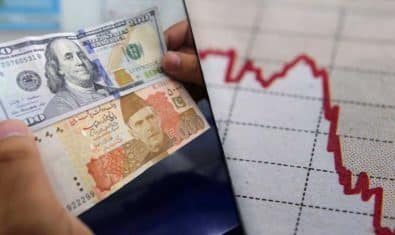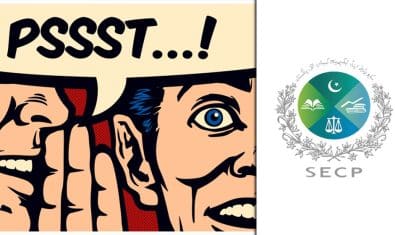The Finance Minister Asad Umar has announced a number of amendments to the Finance Act, 2018 during the National Assembly session earlier today.
The new government is on a roll to improve the country’s overall tax revenues and has already announced numerous changes such as increasing tax rates and removing some tax reliefs. Asad Umar’s latest announcement details some of those changes.
To start off, the minister detailed some economic issues the country faces right now. He noted that the budget deficit has expanded to 6.6 percent, up from 4.1 percent during the previous fiscal year.
The most dangerous situation is that if we continue as we have, the budget deficit will expand 7.2 percent by the end of the ongoing year. This is the assessment of the finance ministry as well as economic experts,
He emphasized that the country’s dire economic condition will get worse in the future if the government does not take extreme measures. The increase of taxes and removal of incentives is just a way to recover from the economic downfall Pakistan faces right now. He highlighted,
The government overestimated revenues by Rs. 350 billion and understated expenditures by Rs. 250 billion. In total, there’s a Rs. 890 billion difference in the projected and budgeted figures for the deficit which we have to contain.
These are difficult times, and they call for difficult measures. But we also need to make sure the burden of our economic measures fall on those who can bear it. The poor are already resource stressed, and we cannot burden them further. Sure, we can seek bailouts from the IMF and other institutions, but that is not the solution: we can only grow when our economy grows, our industries and our people grow.
Tax Reliefs
In his speech, he announced a number of changes for most financial sectors in Pakistan. These are tax reliefs and incentives to help their businesses and to encourage people to work for the welfare of the underprivileged people.
- “For farmers, we are ensuring the provision of urea by boosting local production and by importing 100,000 tons from abroad. A Rs. 6-7 billion subsidy has already been approved.”
- “We will also provide Rs. 540,000 per family in FATA and Islamabad in the form of the Sehat Insaf Card to cover doctors’ fees and medicines. We have also instructed the Punjab government to introduce the facility in the province as well.”
- “We have also directed the release of Rs. 4.5 billion for the completion of a housing scheme for the underprivileged.” The scheme will have 8276 houses.
- “Minimum pension has been increased to Rs. 10,000 for EOBI pensioners.”
- “The past government had projected that it would increase the petroleum levy from Rs. 185 billion to Rs. 300 billion, but we feel that this is highly unfair on the average customer. The government will absorb that impact.”
- “The big decision we made yesterday was a Rs. 44 billion subsidy for the textile industry in Punjab. We will also work to ensure more benefits for zero-rated sectors in our electricity policy.”
Revenue Changes
These are financial policies and tax changes for those who generate income from salaries or trading activities. Other than that, taxes have been increased on items such as cigarettes to discourage their use. Most of the measures are similar to those in practice in foreign countries. Rich people and those with their own businesses are liable to more taxes, that’s what a progressive taxation structure focuses on – the more you earn, the more you pay.
The new higher tax rate (for people whose income exceeds Rs. 2,400,000) for salaried people is 25% and 39% for non-salaried people who generate income from self-employed activities. Asad Umar announced,
- Fiscal adjustment made @2.1%.
- Super tax maintained.
- Rs. 92 billion will be recovered through the use of modern technology and not increasing the taxes on individuals.
- For PM, Ministers and Governors, exemptions from tax (on housing allowance, conveyance and some other allowances) has been withdrawn.
- “We will also raise Rs. 183 billion in additional revenue. Half of this will be raised merely through better administrative procedures that utilize technology to plug leakages in the system. The Federal Board of Revenue has accepted this challenge.” Total revenue target of FBR 4390 billion (Hammad Azhar Mos Revenue).
- “The rate of WHT on non-filers has been increased back to 0.6% on banking transactions.”
- “We have also decided to increase taxes on cigarettes. This is something that is close to my heart, as my own brother passed away a few months ago from lung cancer.” This is also expected to curb smuggling, says Asad Umar. The tax has been increased from Rs. 1 to Rs. 10 per pack.
- “We have also increased some taxes on the rich. We have doubled the federal excise duty on cars of 1800cc engine capacity or more from 10pc to 20pc. We have also decided to increase the duty on several imported luxury products. Likewise, the duty will be increased on expensive phones.”
- “Last thing: we’ve deliberated this in detail. The last government had given sweeping tax relief to all kinds of people, including the richest. The final decision we’ve taken is that we’ll maintain the Rs. 1,200,000 limit on exemption. We are also maintaining the tax rate for those earning between Rs. 100,000 to Rs. 200,000 per month.”
- “For all categories above that, we are increasing the tax rate that was applicable in May but still keeping it lower than what it was last year. We hope that the people who have the means will not oppose us on this.”
- “Since we’re asking the privileged to sacrifice for the sake of Pakistan, we have also decided to withdraw tax exemptions on three services from ministers.”
Development Expenditures
Expenditure on the development and other government schemes has always been a contentious subject in Pakistan. The previous government started a number of infrastructural projects and always focused on apportioning more funds towards developmental activities.
Soon after coming to power, PM Imran Khan’s government started by abolishing some well-known development schemes placed by the previous government. Other than that, the new government is determined to cut down expenditures that have been damaging the country’s economic position.
- “Rs. 661 billion was spent on development last year, and we will spend Rs. 725 billion this year. Out of this, we will be spending Rs. 50 billion on development in Karachi. This is a joint venture between the federal and Sindh governments.”
- “We have also identified infrastructure priorities for the National Highway Authority, on which we will spend Rs. 100 billion. We will spend another Rs. 500 billion on PSDP.”
Auto Industry
Undoubtedly, one of the biggest industries in Pakistan is the auto industry. This sector has its own fair share of problems. There are only three main vehicle manufacturers in Pakistan, that have monopolized the market since over two decades.
The new finance ministry also aims to reduce imports, that are much higher than the total exports made by other industries in Pakistan. One of the major imported items are vehicles, because the one’s available locally do not fit consumer needs. In order to balance out the tax revenue lost on imported vehicles, the government has increased taxes on car purchases.
- A 20% duty will be charged on cars that have engine capacities above 1800cc, according to Asad Umar. The previous charge was 10%, which has now been increased by an additional 10%.
- Non-filers can now purchase vehicles and other property, but on a higher registration rate.
Asad Umar on CPEC
The finance minister promised that the new government will continue all the beneficial and top-priority projects that were started by previous governments. Most importantly, CPEC projects and dam constructions will be carried out with no hindrance.
He stressed that for Pakistan to improve, the most important factor is its economy. Instead of getting IMF funds or foreign aid, the only way the country is going to improve is by developing from within, by generating its own money.
These are immediate fiscal measures, not reforms. The economy is in the ICU [Intensive Care Unit] and we want to get it out of the emergency situation. We have taken emergency measures; we will now move to reforms.
At the end, Asad Umar said that these measures are just to stabilize the economic conditions right now. The government will work on reforms to improve the economy and provide tax relief to the general public in the coming months.


























Best they could have done. I am glad that they removed restriction from non-filers. Those poor and middle class people, who had spent all their life, saving 3 million rupees for brand new car or 10-20 million rupees for their dream house in DHA/Behria were being forced to file tax returns. An addition burden of Rs. 2000 or more. This segment deserves the relief they got.
Poor and middle class don’t pay 3 million for a car and don’t even need a house in bahria or dha.
A sugar coated article,, the news slides on different news channels are showing increase in imported consumable articles etc as well among other items, which is not mentioned here at all.
Imported items are consumed by elites and they can afford to pay for it as well. The rule is simple, the more you earn/spend the more you pay. Relief should be more poors not elites.
Almost everything is import in Pakistan, and Pakistani industries does not work without import.
Dear, if I pay Rs. 100~200 for a tin of canned pineapple or cherries or other canned fruit which is always imported, does that make me an elite ??. Just dont follow someone so blindly, this will affect you and me both.
“We have also increased some taxes on the rich. We have doubled the federal excise duty on cars of 1800cc engine capacity or more from 10pc to 20pc. We have also decided to increase the duty on several imported luxury products. Likewise, the duty will be increased on expensive phones.”
Those who made tall claims to enhance the tax net did not even have the courage to retain the good step of previous setup to discourage non filers and come into the tax net. Total disappointment.Another negative aspect is to grab those 700000 salaried people and made them pay more tax instead of again enhancement of tax net and inclusion of feudals and landlords .Probably because even the leader hardly pays any tax.
Well, the new mini-budget does include changes to tax the PM, Governors, and other leaders. Its also removing their conveyance and housing allowances. As per the article above,
“For PM, Ministers and Governors, exemptions from tax (on housing allowance, conveyance and some other allowances) has been withdrawn.”
Mini Budget Can Build a Pressue into Lower & Middle Class Maxi Budget